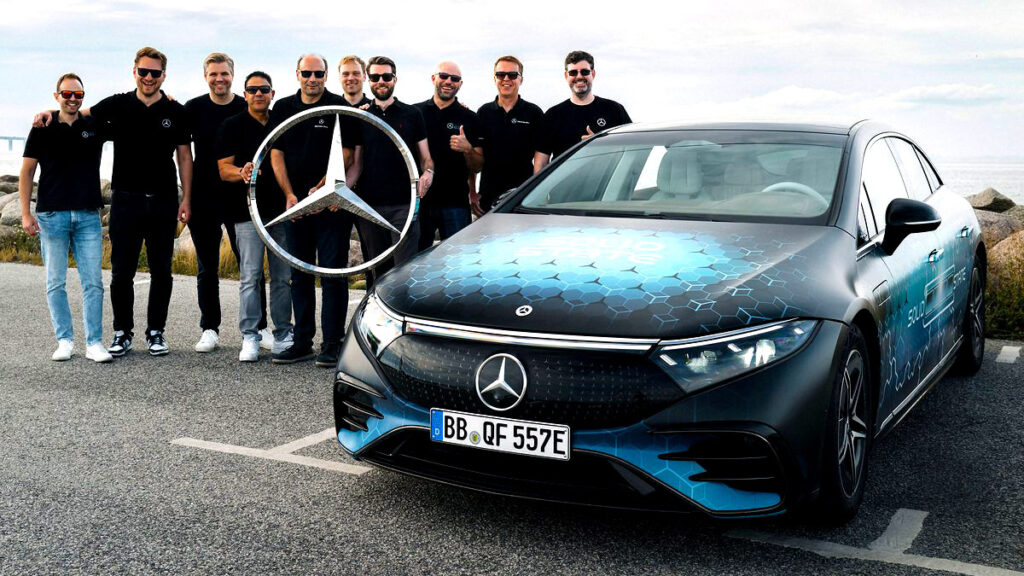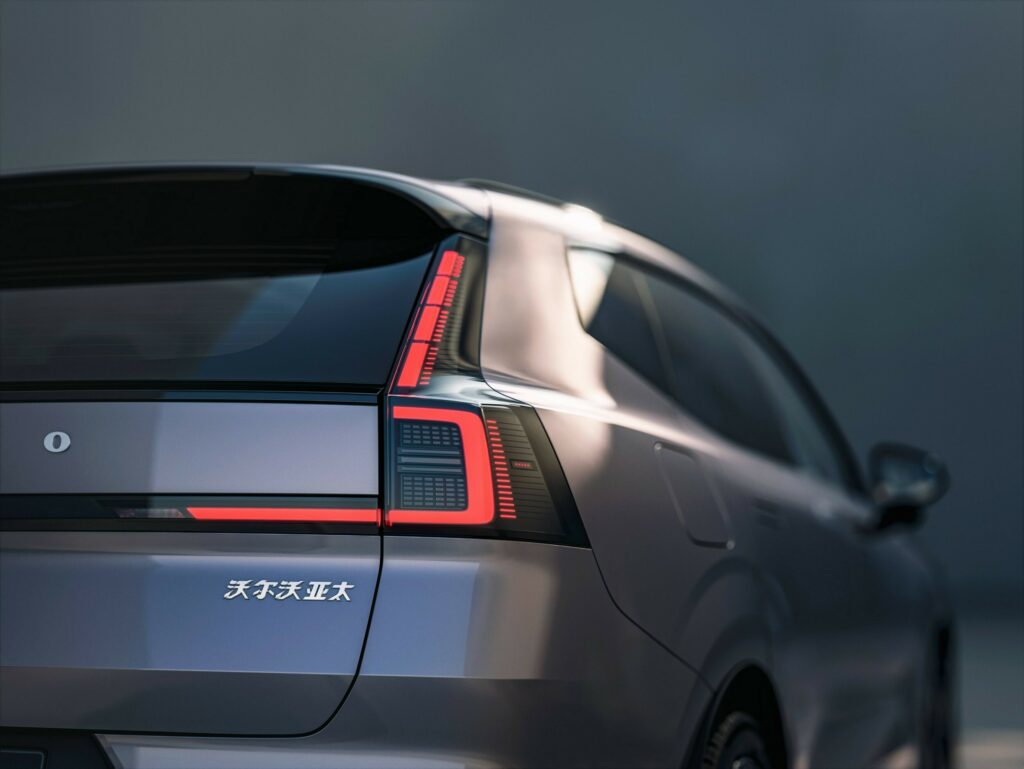Mercedes Needed A Solid-State Battery To Match Lucid’s EV Range Record
- EQS prototype traveled 748.8 miles from Stuttgart to Malmo without recharging once.
- The prototype finished the trip with 85 miles of estimated range still remaining.
- Solid-state battery offers 25 percent more energy than standard pack, same weight.
For years, solid-state batteries have been viewed as the holy grail for battery-electric vehicles, promising better driving range, quicker charging, and improved safety. While it’s taken longer than many had predicted for solid-state battery packs to hit the market, Mercedes-Benz has demonstrated just how transformative the technology could be.
Read: Lucid Shatters World Record With A Drive So Long It Seems Impossible
The German automaker is testing solid-state packs in specially prepared EQS prototypes. One of these cars recently drove from Stuttgart, Germany, through Denmark, and into Malmo, Sweden, covering an impressive 748.8 miles (1,205 km) on a single charge, without stopping to plug in.
Solid-State Advantage
Compared to the battery in a standard EQS, Mercedes says its solid-state pack delivers 25 percent more energy while remaining similar in weight and size. The pack was developed in partnership with Mercedes-AMG High Performance Powertrains and the company’s F1 technology center in the UK, using lithium-metal cells supplied by U.S.-based Factorial Energy.
The 748.8 miles (1,205 km) driven in this EQS prototype exactly matches a recent Guinness World Record set by a Lucid Air Grand Touring, which covered the same 748.8 miles (1,205 km) on a single charge. What makes the feat notable is that Lucid’s car used a conventional 117 kWh lithium-ion battery, while Mercedes managed it with a solid-state pack that still had energy left over.

Range To Spare
Had Mercedes-Benz wanted to continue its journey with this EQS, it could have. They claim that at the end of the trip, the prototype had an estimated range of 85 miles (137 km) left. In theory, that means the electric sedan could have traveled up to 834 miles (1,342 km) without charging, well beyond anything currently on the market.
“The solid-state battery is a true gamechanger for electric mobility,” member of the board of management of Mercedes-Benz Group AG, Markus Schäfer, said. “With the successful long-distance drive of the EQS, we show that this technology delivers not only in the lab but also on the road. Our goal is to bring innovations like this into series production by the end of the decade and offer our customers a new level of range and comfort.”

